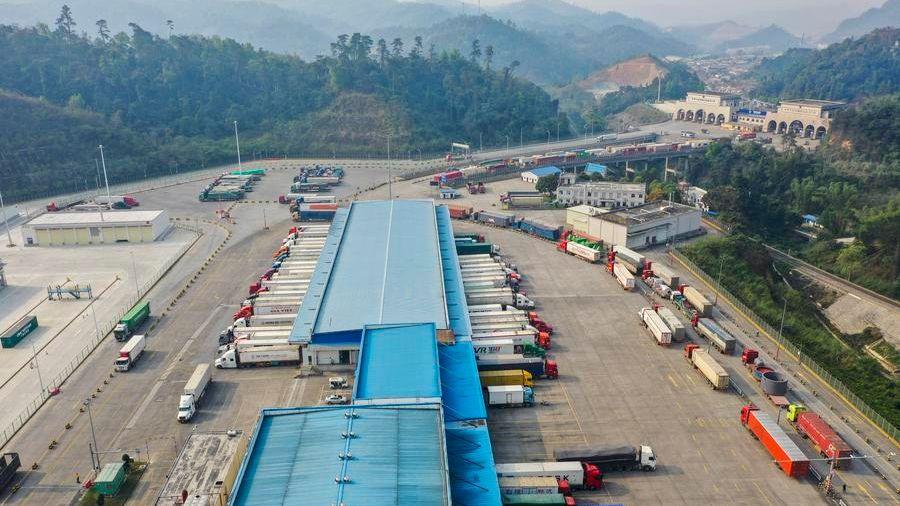An aerial drone photo taken on March 21, 2025 shows trucks loaded with agricultural products from China and ASEAN countries at the Friendship Pass Port in Pingxiang, south China's Guangxi Zhuang Autonomous Region. (Xinhua/Cao Yiming)
The success of Chinese modernization rests on two key pillars -- technological innovation and talent cultivation, Sompop Manarungsan, president of Bangkok-based Panyapiwat Institute of Management, told Xinhua.
BANGKOK, Nov. 2 (Xinhua) -- China's commitment to further opening-up has enabled Thailand and other Global South countries to forge closer partnerships with China, contributing to shared prosperity, a Thai economist has said.
Sompop Manarungsan, president of Bangkok-based Panyapiwat Institute of Management, told Xinhua in a recent interview that China has long upheld multilateralism, actively participating in the work of the United Nations and the World Trade Organization.
The win-win cooperation approach not only supports China's sustainable growth but also creates new opportunities for Thailand and other developing countries, he said.
China has remained Thailand's largest trading partner for years. According to China's General Administration of Customs, in the first half of this year, bilateral trade reached 76.1 billion U.S. dollars, up 17 percent year-on-year.
Moreover, China is Thailand's second-largest export market and the top destination for over 40 percent of Thailand's agricultural exports.
Sompop said Thailand is now implementing the 13th National Economic and Social Development Plan (2023-2027), while the 20th Central Committee of the Communist Party of China adopted the Recommendations for Formulating the 15th Five-Year Plan at its fourth plenary session.
The two countries share many development goals, such as innovation-driven growth and green transformation, he said, adding that strengthening cooperation in areas such as smart tourism, digital services and artificial intelligence will inject new momentum into bilateral trade and contribute to regional prosperity.
Sompop said green development will become a new highlight in future Thailand-China cooperation. With its favorable geographic conditions and abundant solar resources, Thailand can draw on China's experience to expand renewable energy use and further advance its sustainable energy development to benefit more people, he added.
As a veteran expert on the Chinese economy, Sompop said Chinese modernization differs from the Western model. While Western countries focus on materialism and individualism, China values inclusiveness and common prosperity, while its political system also ensures strong policy continuity and effective implementation, he added.
The success of Chinese modernization rests on two key pillars -- technological innovation and talent cultivation, Sompop said, noting that over the past two decades, China has made remarkable strides in science and technology, while continuing to invest heavily in education and human capital, particularly in STEM fields (science, technology, engineering and mathematics).
These twin engines, supported by openness and inclusiveness, allow this process to generate new opportunities for the world, he said.




 A single purchase
A single purchase









